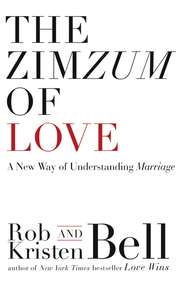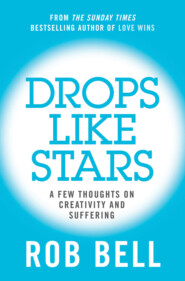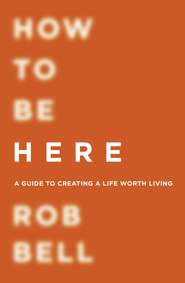По всем вопросам обращайтесь на: info@litportal.ru
(©) 2003-2024.
✖
Love Wins and The Love Wins Companion
Автор
Год написания книги
2018
Настройки чтения
Размер шрифта
Высота строк
Поля
Right now, we’re trying to embrace our lover, but we’re wearing a hazmat suit.
We’re trying to have a detailed conversation about complex emotions, but we’re underwater.
We’re trying to taste the thirty-two different spices in the curry, but our mouth is filled with gravel.
Yes, there is plenty in the scriptures about life in the age to come, about our resurrected, heaven-and-earth-finally-come-together-as-one body, a body that’s been “clothed in the immortal” that will make this body, the one we inhabit at this moment, seem like a temporary tent.
And yes, there were plenty of beliefs then about what the future would hold, just as there are now.
But when Jesus talks with the rich man, he has one thing in mind: he wants the man to experience the life of heaven, eternal life, “aionian” life, now. For that man, his wealth was in the way; for others it’s worry or stress or pride or envy—the list goes on. We know that list.
Jesus invites us,
in this life,
in this broken, beautiful world,
to experience the life of heaven now.
He insisted over and over that God’s peace, joy, and love are currently available to us, exactly as we are.
So how do I answer questions about heaven?
How would I summarize all that Jesus teaches?
There’s heaven now, somewhere else.
There’s heaven here, sometime else.
And then there’s Jesus’s invitation to heaven
here
and
now,
in this moment,
in this place.
Try and paint that.
Click here for notes on this chapter from The Love Wins Companion (#litres_trial_promo)
Chapter 3
Hell
First, heaven.
Now, hell.
Several years ago I was getting ready to speak in San Francisco when I was told that there were protestors on the sidewalk in front of the theater. They were telling the people standing in line waiting to get in that they were in serious trouble with God because they had come to hear me talk. A friend of mine thought it would be fun to get pictures of the protesters. When he showed them to me later, I noticed that one of the protestors had a jacket on with these words stitched on the back:
“Turn or Burn.”
That about sums it up, doesn’t it?
Fury, wrath, fire, torment, judgment, eternal agony, endless anguish.
Hell.
That’s all part of the story, right?
Trust God, accept Jesus, confess, repent, and everything will go well for you. But if you don’t, well, the Bible is quite clear . . .
Sin, refuse to repent, harden your heart, reject Jesus, and when you die, it’s over. Or actually, the torture and anguish and eternal torment will have just begun.
That’s how it is—because that’s what God is like, correct?
God is loving and kind and full of grace and mercy—unless there isn’t confession and repentance and salvation in this lifetime, at which point God punishes forever. That’s the Christian story, right?
Is that what Jesus taught?
To answer that question, I want to show you every single verse in the Bible in which we find the actual word “hell.”
First, the Hebrew scriptures. There isn’t an exact word or concept in the Hebrew scriptures for hell other than a few words that refer to death and the grave.
One of them is the Hebrew word “Sheol,” a dark, mysterious, murky place people go when they die, as in Psalm 18: “The cords of Sheol entangled me” (NRSV). There’s also mention of “the depths,” as in Psalm 30: “I will exalt you, LORD, for you lifted me out of the depths”; the “pit,” as in Psalm 103: “The LORD . . . who redeems your life from the pit”; and the grave, as in Psalm 6: “Who praises you from the grave?”
There are a few references to the realm of the dead, as in Psalm 16: “My body also will rest secure, because you will not abandon me to the realm of the dead,” but as far as meanings go, that’s the extent of what we find in the Hebrew scriptures.
So what do we learn?
First, we consistently find affirmations of the power of God over all of life and death, as in 1 Samuel 2: “The Lord brings death and makes alive; he brings down to the grave and raises up”; and Deuteronomy 32: “There is no god besides me. I put to death and I bring to life.”
We do find several affirmations of God’s presence and involvement in whatever it is that happens after a person dies, although it’s fairly ambiguous at best as to just what exactly that looks like.
In one of the stories about Moses, God is identified as the God of “Abraham, Isaac, and Jacob.” Those three—Abraham, Isaac, and Jacob—were dead by the time this story about Moses takes place. Where exactly Abraham, Isaac, and Jacob were at that time isn’t mentioned, but Moses is told that God is still their God (Exod. 3).
Once again, it’s an affirmation of God’s enduring and sustaining power over life and death, and yet very little is given in the way of actual details regarding individual destinies.
Second, the Hebrews often used the words “life” and “death” in a different sense than we do. We’re used to people speaking of life and death as fixed states or destinations, as in you’re either alive or you’re dead. What we find in the scriptures is a more nuanced understanding that sees life and death as two ways of being alive. When Moses in Deuteronomy 30 calls the Hebrews to choose life over death, he’s not forcing them to decide whether they will be killed on the spot; he’s confronting them with their choice of the kind of life they’re going to keep on living. The one kind of life is in vital connection with the living God, in which they experience more and more peace and wholeness. The other kind of life is less and less connected with God and contains more and more despair and destruction.
Third, it’s important here to remember that the Israelites, who wrote the Hebrew scriptures, had been oppressed and enslaved by their neighbors the Egyptians, who built pyramids and ornate coffins and buried themselves in rooms filled with gold, because of their beliefs about life after death. Those beliefs appear to have been a turnoff for the Jews, who were far more interested in the ethics of and ways of living this life.
There is a story about the death of King David’s child, in which David says that if he can’t bring the child back, he would go to where the child is (2 Sam. 12). There are several mentions in the book of Job about lying down, descending, and being buried in the dust—all references to death.











